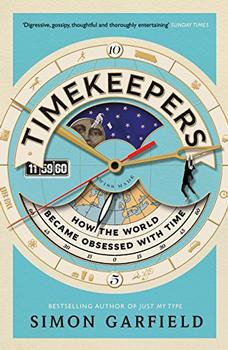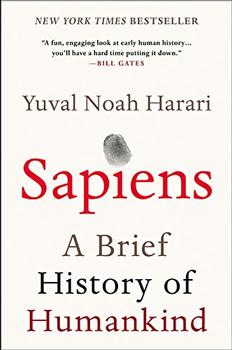Summary | Excerpt | Reviews | Beyond the book | Read-Alikes | Genres & Themes | Author Bio

A Natural and Cultural History
by Cynthia BarnettRain is elemental, mysterious, precious, destructive. It is the subject of countless poems and paintings; the top of the weather report; the source of the world's water. This is the first book to tell the story of rain.
Rain is elemental, mysterious, precious, destructive.
It is the subject of countless poems and paintings; the top of the weather report; the source of the world's water. Yet this is the first book to tell the story of rain.
Cynthia Barnett's Rain begins four billion years ago with the torrents that filled the oceans, and builds to the storms of climate change. It weaves together science - the true shape of a raindrop, the mysteries of frog and fish rains - with the human story of our ambition to control rain, from ancient rain dances to the 2,203 miles of levees that attempt to straitjacket the Mississippi River. It offers a glimpse of our "founding forecaster," Thomas Jefferson, who measured every drizzle long before modern meteorology. Two centuries later, rainy skies would help inspire Morrissey's mopes and Kurt Cobain's grunge. Rain is also a travelogue, taking readers to Scotland to tell the surprising story of the mackintosh raincoat, and to India, where villagers extract the scent of rain from the monsoon-drenched earth and turn it into perfume.
Now, after thousands of years spent praying for rain or worshiping it; burning witches at the stake to stop rain or sacrificing small children to bring it; mocking rain with irrigated agriculture and cities built in floodplains; even trying to blast rain out of the sky with mortars meant for war, humanity has finally managed to change the rain. Only not in ways we intended. As climate change upends rainfall patterns and unleashes increasingly severe storms and drought, Barnett shows rain to be a unifying force in a fractured world. Too much and not nearly enough, rain is a conversation we share, and this is a book for everyone who has ever experienced it.
Barnett delivers an endlessly whimsical and engaging narrative tour of rain through life’s many lenses. It is a testament to her writing ability that the reader will be left wanting more — a consistently drenching information soak instead of mere drizzle in places...continued
Full Review
 (700 words)
(700 words)
(Reviewed by Poornima Apte).
 One of the many people profiled briefly in Rain: A Natural And Cultural History, is Cleveland Abbe, a pioneer in American meteorology. Born in New York City in 1838, the eldest of seven siblings, Abbe would go on to earn professional degrees in astronomy. But as he advanced his studies, he increasingly came to realize the intersection between the study of celestial objects and the weather: "Astronomers who would improve their meridional measurements must investigate their local atmospheric conditions more thoroughly, and to this end must have numerous surrounding meteorological observations." It was also time, he said, for science to play a role in forecasting, something that was until then under the purview of "local lore and weather ...
One of the many people profiled briefly in Rain: A Natural And Cultural History, is Cleveland Abbe, a pioneer in American meteorology. Born in New York City in 1838, the eldest of seven siblings, Abbe would go on to earn professional degrees in astronomy. But as he advanced his studies, he increasingly came to realize the intersection between the study of celestial objects and the weather: "Astronomers who would improve their meridional measurements must investigate their local atmospheric conditions more thoroughly, and to this end must have numerous surrounding meteorological observations." It was also time, he said, for science to play a role in forecasting, something that was until then under the purview of "local lore and weather ...

If you liked Rain, try these:

by Simon Garfield
Published 2018
As managing time becomes the greatest challenge we face in our lives, this multi-layered history helps us tackle it in a sparkling new light.

by Yuval Noah Harari
Published 2018
A groundbreaking narrative of humanity's creation and evolution that explores the ways in which biology and history have defined us and enhanced our understanding of what it means to be "human."